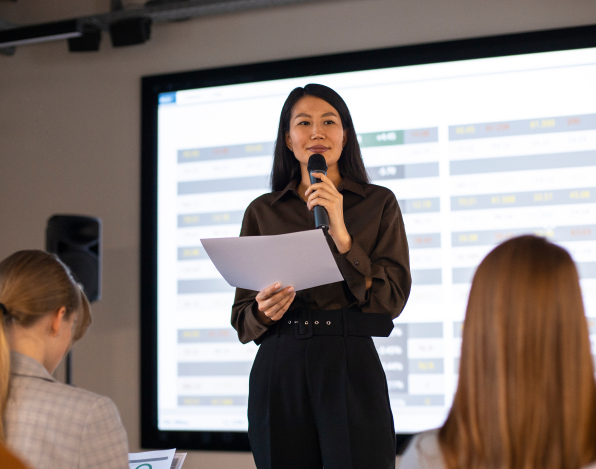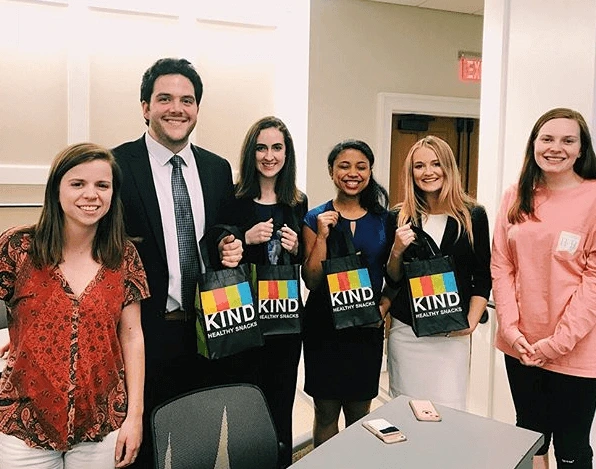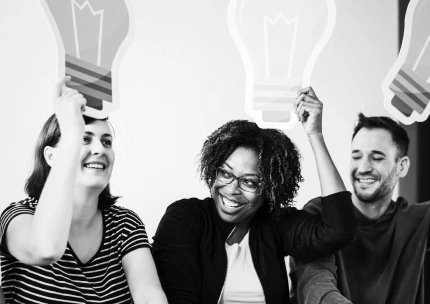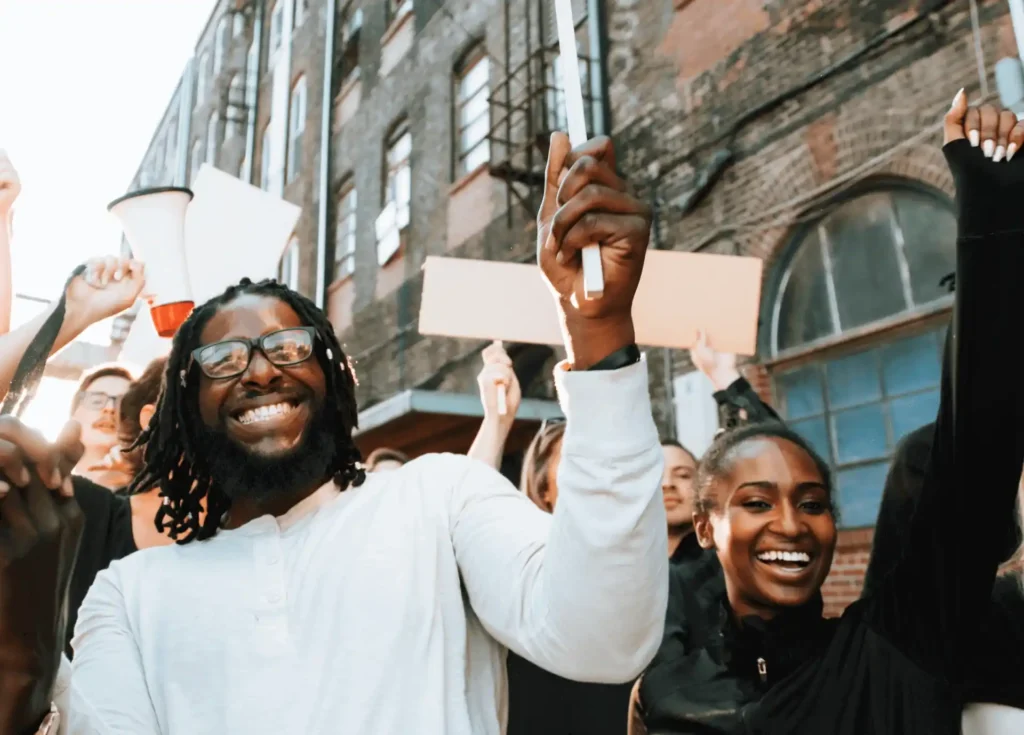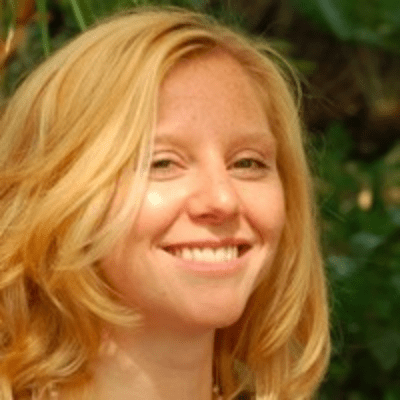I had the opportunity to chat with Peter Ukhurebor, Co-founder of One Block Village, who is on a mission to change the stakes in the advertising world by working with agency leaders and brands to ante up their commitment to increase the representation of Black creatives.
What is your perception of diversity in advertising?
Many agencies put up black squares last year at the passing of George Floyd and claimed they would hold themselves accountable. It’s been a year, and the numbers of Black professionals in advertising have not changed. The 1960’s golden age of advertising for POC is gone, and by the 2000s, only 5-8% of advertising was represented by people who identify as Black.
We are tired of symbolism and creating emotional strategies to sell a brand’s products and services. We see past this, and consumers are also becoming aware of what is going on. To combat this backslide, we need brands and agencies to make a real commitment, do the hard work, and make an investment not just by putting Black people in front of the camera to drive sales with empathic messages but giving them opportunities behind the camera to show real change.
Brands that do not yield to this advice will be left behind due to a lack of diverse and innovative thinking. We saw what happened to Blockbuster, Kodak, and Toys ‘R Us. Don’t be the next failure. Diversity is the future of growth for any business in America.
Talk about One Block Village.
One Block Village is a nonprofit focused on changing the advertising and tech industry by infusing more people of color into the creative workforce. One aim of the organization is to work with agencies and brands to grow diversity in advertising via headhunting and recruitment.
One Block Village also offers business workshops and training for agencies. Our goal is to work with global advertising brands to build a talent database for talent of color across America.
We currently have over 50 positions to fill, and we update our website every week. For creative talent seeking opportunities, they should visit oneblockvillage.com/jobs to view available posts or email [email protected].
What is a strategy a company can use to attract diverse talent?
It’s straightforward: show them their opinions matter. There are many skilled, hardworking, and talented people out here, but they are not given the opportunity. Create the opportunity and invite them in.
How did you get into diversity recruitment? What are some specific goals?
I am a unicorn in the industry and am focused on creating a better country for my son. I have decided to take on the challenge to make a change in my lifetime. I got into diversity recruitment because I heard agency leaders saying they cannot find people of color, particularly Black people, who are qualified with the right skills for open positions.
I am of the firm belief that change happens from the top down. I am currently collaborating with GTB and other advertising agencies, as a consultant to help steer change. I headhunt diverse talent for agencies working with their recruitment teams.
My second mandate is to implement strategies to grow the number of people of color across the all agencies I work with globally through internships and apprenticeship programs.
What advice do you give students and young professionals seeking a career in advertising?
My advice is never to give up. Believe in yourself; never let anyone make you feel this industry is hard. If you think this is what you want to do, go for it. Work on your resume and portfolio, reach out to recruiters, network with industry leaders, and keep pushing.
What role should brands place in DEI/social justice/equity?
Brands should embrace the diversity represented in the consumer market and build a workforce reflective of the people they are trying to get to purchase their products or services. Companies should also seek to do business with vendors owned and operated by people of color. These steps will ensure equality and justice are actualized through economic opportunity.
How can mostly white teams support their BIPOC colleagues?
When you see something wrong, speak up. Be uncomfortable with the status quo of having an all-white C-suite, knowing it is not okay. America is a melting pot of people with different cultures and beliefs but with similar goals. Companies need to embrace this by reaching out to lift disadvantaged communities by supporting professional development programs.
I recommend white people use their voices to ask BIPOC professionals what they need to progress in their careers. Take the time to make an effort, helping young professionals get a leg up in the industry from actual work experience. There is so much that can be done to be an ally.
What are your thoughts on allyship and mentorship for professional development?
I feel those words are now taken lightly, and we cannot see the progress of what they have done in the past. We have witnessed tokenism and real allyship comes at a cost. I can talk of a few agencies who told me that they could not afford to pay a retainer or secure a particular service for a Black recruitment firm, yet they have external white firms making millions off them. Many agencies use lip service to create the idea they are real allies, while in reality, their numbers have not changed. They have not committed to change, but they still can.
What concerns you and what gives you hope about America?
What concerns me today is the lack of momentum for change in America. For example, The Dyer Anti-Lynching Bill was first introduced in 1918 by Representative Leonidas C. Dyer. On February 26, 2020, the House passed a revised version, the Emmett Till Antilynching Act, but it did not pass both houses or into law which is painful for people of color. Inequality is still as natural as it was in the 1930s. On the other hand, what gives me hope is that the generation to come will be even more diverse, and the change we seek might come in another 50 years.
Who are heroes/heroines, and why?
I would say Steve Biko, Malcolm X, Marcus Garvey, Thomas Sankara, Harriet Tubman, Rosa Parks, Frederick Douglass, and Martin Luther King. These people are leaders who can not be swayed. They represent people not scared to stand up and speak out about what they believe in challenging the status quo.
Do you have a mantra?
Everything is possible I put my mind to.
Peter Ukhurebor is a Nigerian American with 15 years in advertising as a unicorn. His career spans three continents working as a copywriter, art director, planner, brand manager, and UX strategist. He is also the co-founder of One Block Village, a Detroit-based non-profit that seeks the inclusion of diversity in the advertising industry by recruitment, education, and innovation.
Alison Foster is a seasoned B2B tech marketer with a passion for leveraging her voice to call out injustices and by taking a stand to dismantle the systems and policies that disempower and exploit marginalized communities in our society.




